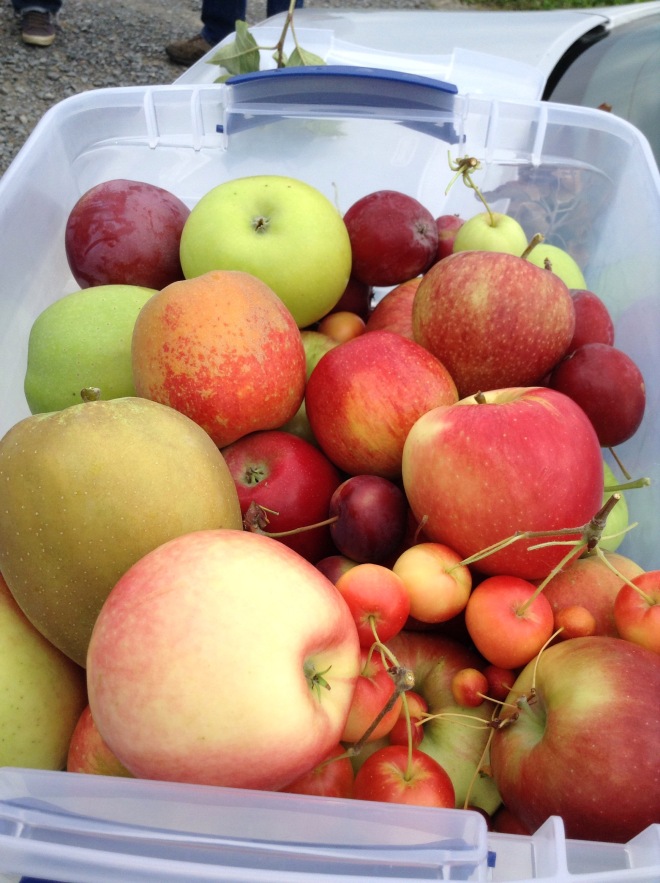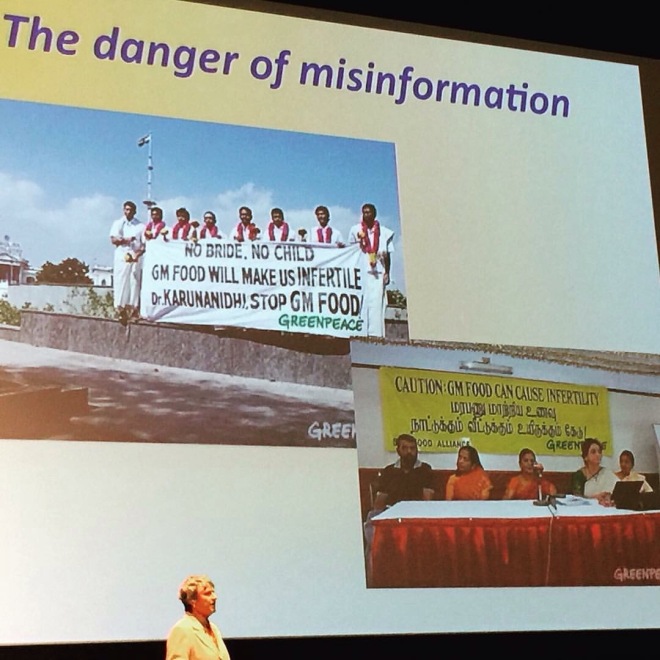The new year is right around the corner and I am hoping that this year will be a better year than the last. With what I’ve learned at Cornell during my Alliance for Science fellowship, I have even more hope for the future.
Many people are wondering what in the world could I have spent the last 12 weeks in Ithaca doing. I can tell you that I learned a tremendous amount of information that if I listed it all, it would take hours on end to put it all down.
I’ll do the top 5 things that I took away from my experience at Cornell.

1) We eat science every single day.
After touring a day at the Geneva USDA Research Center, I have a newfound appreciation of the food we eat. Before going to Cornell, I’d simply look at an apple in the market and bag it then later eat it.
After being able to try wild apples the size of a pea to a deep red flesh one, I am amazed of how we get the amazing array of foods in the stores. Those delicious Honeycrisp apples are a product of at least a dozen years of studying the genome of various crosses and development. An apple, as well as any other food we eat, is a huge product of science.
2) Publicly funded biotech research is happening worldwide even though we never hear it.
There are countries across the globe conducting research to develop a variety of crops in the public sector. From Bt cowpea to wilt resistant bananas, the research is happening to help small farmers around the world grow their crops. The cries of the anti-biotech activists stating that the world doesn’t want GMOs is completely false.
There are real problems facing major crops around the world and biotech is a tool to help address these problems. To claim that the multinational agrochemical corporations are trying to take over the food supply is patently false if countries like Nigeria and Bangladesh have their own research entities creating these innovations.

3) The anti-biotech activism uses people’s deepest fears and tailors it to the locale.
In Hawaii, the activists attempted to fear monger on GMOs but failed and decided to go after pesticides. However, in developing countries, there are substances used that we have banned here so they don’t mention pesticides. That is reserved for the wealthy countries with lots of food and far from the farm. Instead they go with claims that GM food make people gay or infertile. Wild claims that once again create fear and hysteria is their specialty.

4) There are wonderful scientists in the world doing great things for their country that can’t get it out to their farmers.
I had the fortunate chance to meet Clet Wandui Masiga of Uganda, who is not only a scientist and a farmer. He has seen firsthand how improved seeds can make a world of a difference for his fellow small farmers. Farming in his country faces many challenges and devastation from crop failure affects a large sector of the population since nearly 60-70% are involved in agriculture.
For us as modern day urbanites relying on Google for learning ag technology to tell an African farmer he can’t have improved seeds is misguided. We don’t live their lives to know what is best for them but too many have made it their life’s mission.
It was sad to see the angry activists at the Alliance for Science Ask me Anything event telling a fellow from Ghana, “If you accept GMOs, you’re allowing Monsanto to colonize Africa!” If anything is colonizing these countries, it’s their infectious misinformation that is cause real harm.

5) No matter where we are in the world, we share a common bond. We are wanting a better future for our children. The best way to achieve this is through using the best information we have. By asking questions and studying the issue, we can develop better ways of doing things. It’s using the process called science to continually learn and understand our world better.
There is knowledge there that we are building upon through those who learned before us. Like my dad teaching my brother to farm and now looking at my son’s future, we share hope that the next generation can continue a family legacy or a cultural practice.
Knowing our roots and passing on knowledge is how we perpetuate our values in our children. Transient social media activism will not continue those familial bonds or teach life lessons.
My life has changed after this experience and it really given me clearer picture of the Hawaii I want for the future. We can sustain our families by continually learning and figuring out how to adapt to our ever changing world. The world is not black and white and we must seek collaboration. We can’t take away the very thing that gives us life. That is how we must move forward for the sake of our children.

Hi Joni, your blog entries are right on-target! We need you to continue “telling it like it is” because the reality is that much of the world’s people live in the tropics and it is in the tropics that pest pressure is highest and unrelenting. Indeed “…by 2050, two out of every three people will be living in the tropics – most of them in tropical Africa.” While the issue of pesticide use in agriculture is controversial the benefit of the use of pesticides is difficult to argue against. And, in the public health sector, pesticides are an absolutely essential tool. We need look no further than the dengue fever outbreak on the island of Hawaii to verify that.
While being completely self-sufficient in food production is a lofty goal, worthy of pursuit, today’s insistence on a varied diet make that a goal that is difficult to achieve. Does that mean we should not pursue it? No, of course not. But that knowledge helps us make practical, realistic, economic, and environmentally sensitive decisions regarding the responsible use of pesticides when other control measures fail or are more financially out of reach.
Personally, I am eternally grateful that people such as yourself, your Dad, and Joan Conrow are not afraid to go out in the public and mix it up with those opposed to conventional and biotech agriculture. Eventually we all need to realize that if we want to have a diet that is diverse and healthy we will need to confront the reality of pest pressure on the crops we grow. Even organic agriculture is presented with the reality of whether to spray organically approved pesticides to protect their crop and their livelihood. And so, I think that if all were to think critically about the pest challenges associated with crop production in the tropics then pesticides are a useful tool and one that should be handled responsibly and within the confines of the law. If that is what we are doing, as farmers, then we can go to sleep at night knowing that we have done the right thing and our families are so much the better for it!
Mahalo John for always supporting us too. It used to be a very lonely place but more and more people are getting it. That indeed gives me hope for the future of farms in Hawaii.
We can’t be defined by others and will tell our own story. That’s what needs to be heard.
Happy New Year and hope to see you again soon!